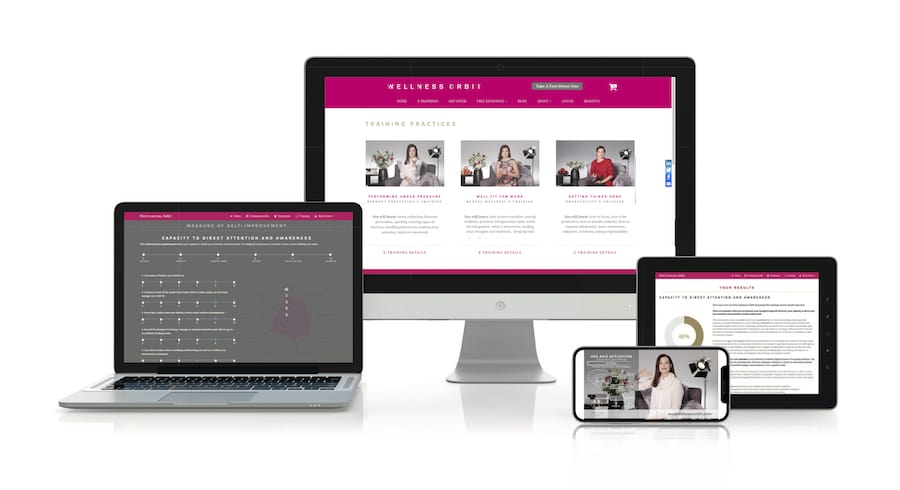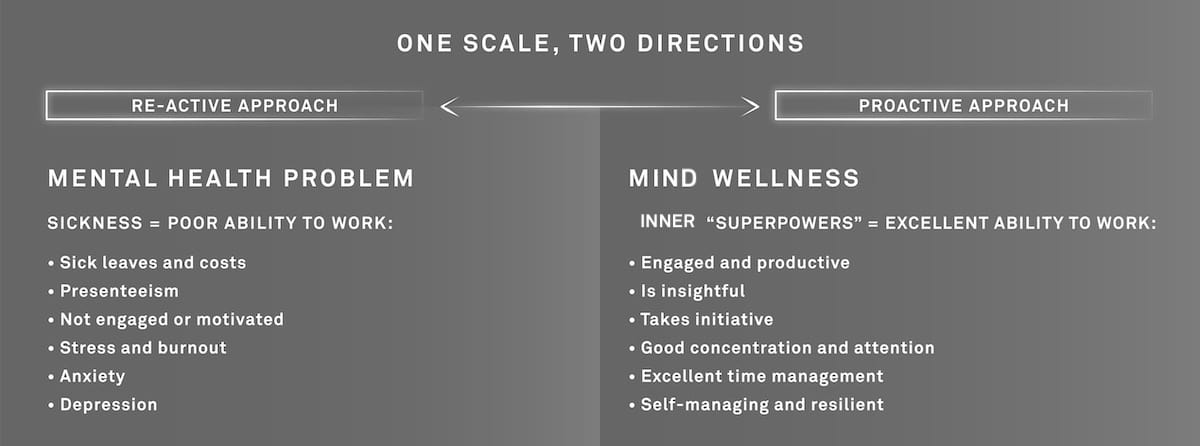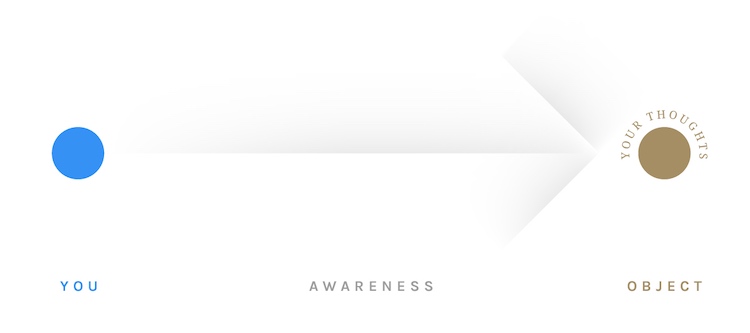First, the term intrapersonal separates our intrinsic functions and inner processes from the physiological functions of the physical body and the world around us. Secondly, skills refer to something that you master.
Intrapersonal skills can be seen as mastery of processes within our minds (thoughts, imaginations and emotions). However, there is also the conscious side that allows us to lead awareness itself. The most fundamental intrapersonal skills are awareness-based inner skills.
On this page, we discover why it is beneficial to train intrapersonal skills and allow you to find efficient online trainings for securing those inner skills proactively.
|
The difference between knowledge and skills.
Skills and knowledge are two related but, in essence, different concepts.
Knowledge refers to the theoretical and factual understanding of a subject, while skills refer to the practical application of that knowledge in a particular context.
Skills are always personal. You have them or you don't. It is that simple.
For example, a person might have knowledge of different programming languages and read many programming books, but when they lack the skill to write functional and efficient code that performs well, that knowledge doesn't allow them to provide programming services or program complicated IT systems.
AI offers superbly fast existing knowledge combinations. Today, it can combine existing data faster than any human brain. However, as AI and all programs and robots lack consciousness and awareness-based intrapersonal skills (like creativity and insight), those systems are smart but not wise.
Wiseness always comes from the application of awareness.
For example, building an atomic bomb shows intelligence or smartness, but to avoid using the bomb, you need wisdom. Acknowledging, observing, cognitively analyzing, and realizing something are all intrapersonal skills. The theory here matters less than practice.
Our school systems are more knowledge-centric than skills-centric. Also, our educational curricula lacks the ability to teach wisdom based on consciousness and awareness-based intrapersonal skills.
Without intrapersonal education and proper application of intrapersonal skills, we fail at successful self-leadership. Our intrapersonal skills represent our practical abilities that allow individuals to perform lead inner processes purposefully regardless of outer contexts, stressors and circumstances.
The key to all intrapersonal skills is awareness
The key to developing your intrapersonal skills is the discovery of your awareness.
Awareness is the most fundamental intrapersonal skill; it allows the discovery of awareness and all awareness-based intrapersonal skills.
Discovering and developing your intrapersonal skills is personal, and you can't outsource it to someone else. That is why training intrapersonal skills matters.
Discovering and studying your intrapersonal level becomes easier when it is guided by someone who has mastery over their inner domain. A skillful awareness practitioner can easily teach people to lead the intrapersonal processes that allow them to have good self-leadership and prevent suffering from mental health issues.
The proactive investment in learning intrapersonal skills and securing excellent mind health can bring tenfold ROI!

HOW CAN I BENEFIT FROM INTRAPERSONAL SKILLS?
Possession of intrapersonal skills permits you to gain mental strength and inner calmness.
Training and applying intrapersonal skills allows your team to become productive and engaged without sacrificing individual mental wellness in the process.
As the human brain is neuroplastic, intrapersonal skills are trainable.
Neuroplasticity refers to the brain's ability to change and adapt in response to new experiences and learning (even in the case of injury).
Neuroplasticity allows the molding of our brains throughout our lives.
Neuroplasticity also supports cognitive flexibility, which is the ability to switch between tasks and adjust to changing work demands. This can help individuals stay productive and effective, even in dynamic and stressor-rich work environments.
While subconscious copying of habitual patterns dominates the world, it is time to learn how to lead our inner domain at will! This option demands the discovery of our awareness and using our own conscious will to lead it.
Dr. Helena Lass writes that her scientific paper 'Developing Intra-Personal Skills as a Proactive Way to Personal Sustainability – The Preventative Side of the Mental Health Equation' in reality, all humans possess an internal realm and experience intrapersonal events daily such as feeling emotions, learning, thinking, planning, focusing and leading our attention, having the ability to investigate, gaining an insight, etc." In this context, intrapersonal skills become our 'superpowers' for directing different intrapersonal events.
Intrapersonal skills are fundamentally your success skills.
Intrapersonal skills can be seen as inner superpowers that allow our mind wellness and permit all professional skills to shine. See the graph below, where on the right-hand side, you discover the benefits of good intrapersonal skills.

Self-leadership also allows us to spot and lead different inner processes that are capable of disturbing our work and healthy life patterns. Such intrapersonal disturbances may be a lack of focus, short attention span, constant inner reactivity to outside stressors and events, worry, negative self-talk, overthinking and emotional turmoil. All those keep us down and even make us ill (see the left side of the graph above).
Only when you are mentally fit and have a calm mind can you solve any problem with (relative) ease, become creative, and take personal initiative.
We can look at intrapersonal skills as the basic skills that open up other skills.
We can compare intrapersonal skills to the skill of reading. When you can read, you can use this skill to discover knowledge and develop mental competencies based on what you read as a result.
All the key intrapersonal skills are awareness-based
Learning to use your awareness is the fundamental cornerstone of all intrapersonal skills.
In her scientific paper, Dr. Helena Lass explains, "One can contribute and reach goals considerably better if there exists know-how about the conscious application of awareness to effectively process data, orient in changing the environment, and become aware of and regulate one’s emotional as well as mental reactions." So, all awareness-based intrapersonal skills are self-leadership skills.

What is awareness?
- Awareness and intellect-related;
- Mental and cognition-related;
- Feelings and emotion-related.
Awareness-based intrapersonal skills are all founded upon the human ability to direct one's awareness at will. Such skills are, for example, the capability to observe and differentiate, the ability to access intuition and insights at will, etc.
Also, our ability to focus, stay focused, access creativity, lead our emotions and thoughts at will is based on aware self-leadership.
"Awareness is your ability to register what is going on." – Ingvar Villido
Awareness can be described as a connector between your (True Self) and any chosen object that allows you to sustain focus on something as long as needed. Your focus can be directed either to an external object or to an internal object (like your thoughts, as shown in the graph below).

Illustration of the arrow of awareness between you and the object by Ingvar Villido. Illustration design Jürgen Salenbacher.
Being closer to our True Self than different processes in our mind (like thinking, imagination and emotions), awareness represents the inner tool we use to investigate different processes within our mind. As a universal agent for discovery, awareness is the fundamental base for developing any other intrapersonal skills.
We all intuitively rely on awareness during novel situations, but then slip back to the automatic subconscious mode for the rest of the time. This subconscious mode is reactive and thus causes inner reactivity that leads to stress, burnout, depression, and other mental health issues.
What does awareness enable?
Using your own awareness to observe your own mind is the most efficient inner tool or intrapersonal skill that you have. Discovering it and then learning to use it will open up a direct path to removing your own inner reactions and mental and emotional blocks.
Learning to lead your awareness at will enables you to master all processes within your mind. Only by disengaging the subconscious autopilot mode can you enjoy true freedom from your inner reactions that up to now have taken place subconsciously, as without using the tool of awareness, such inner events are too subtle to notice.
Your awareness enables you to:
- Observe your intrapersonal and external processes. For example, due to this, you can notice the development of inner pressure;
- Change and lead inner processes at will (also on the mental and emotional levels);
- Focus as long as needed;
- Observe any situation of an object and notice details;
- Using inner silence to access your insights, intuition, and use your creativity at will;
- Become aware of awareness (conscious) and discover your True Self.
The discovery of awareness in practice frees you from subconscious reactive limitations. Training intrapersonal skills improves your focus, mind health and work results. Practical use of awareness and intrapersonal skills reduces stress, prevents burnout, and allows the prevention of mental health related problems.
CONCLUSION
Training intrapersonal skills allows active use of awareness for leading all of our own inner processes.
During the era of AI, learning to spot and lead our awareness and possessing good intrapersonal skills matters because, as technology becomes more advanced and ubiquitous, it's easy to get caught up in the fast-paced, constantly connected, and distracting nature of modern life.
Being present or being aware of our awareness in any given moment can help individuals develop a greater sense of focus, clarity, and calmness, which can be particularly valuable in the face of the rapid changes and complexities of the digital age.
|




